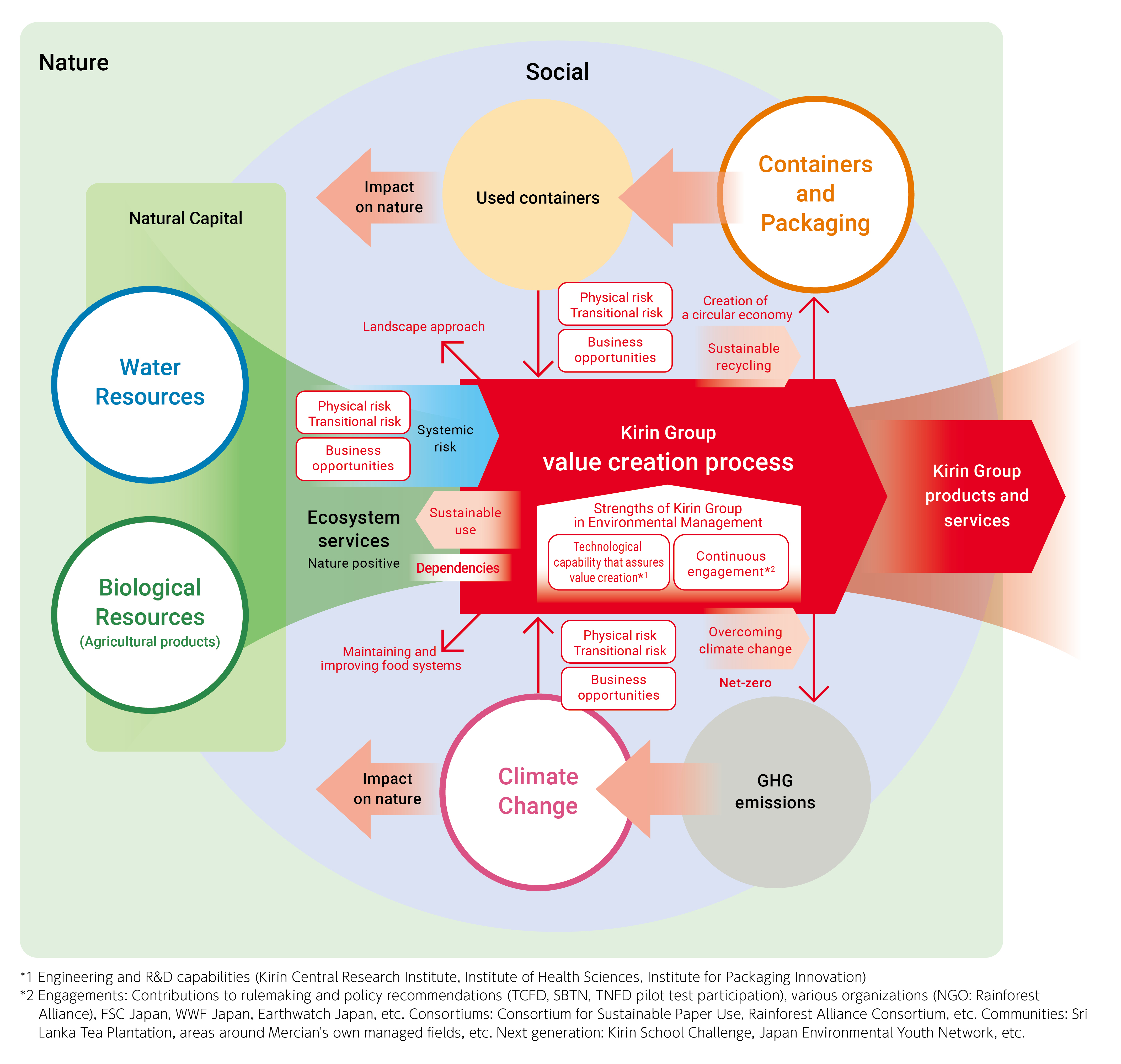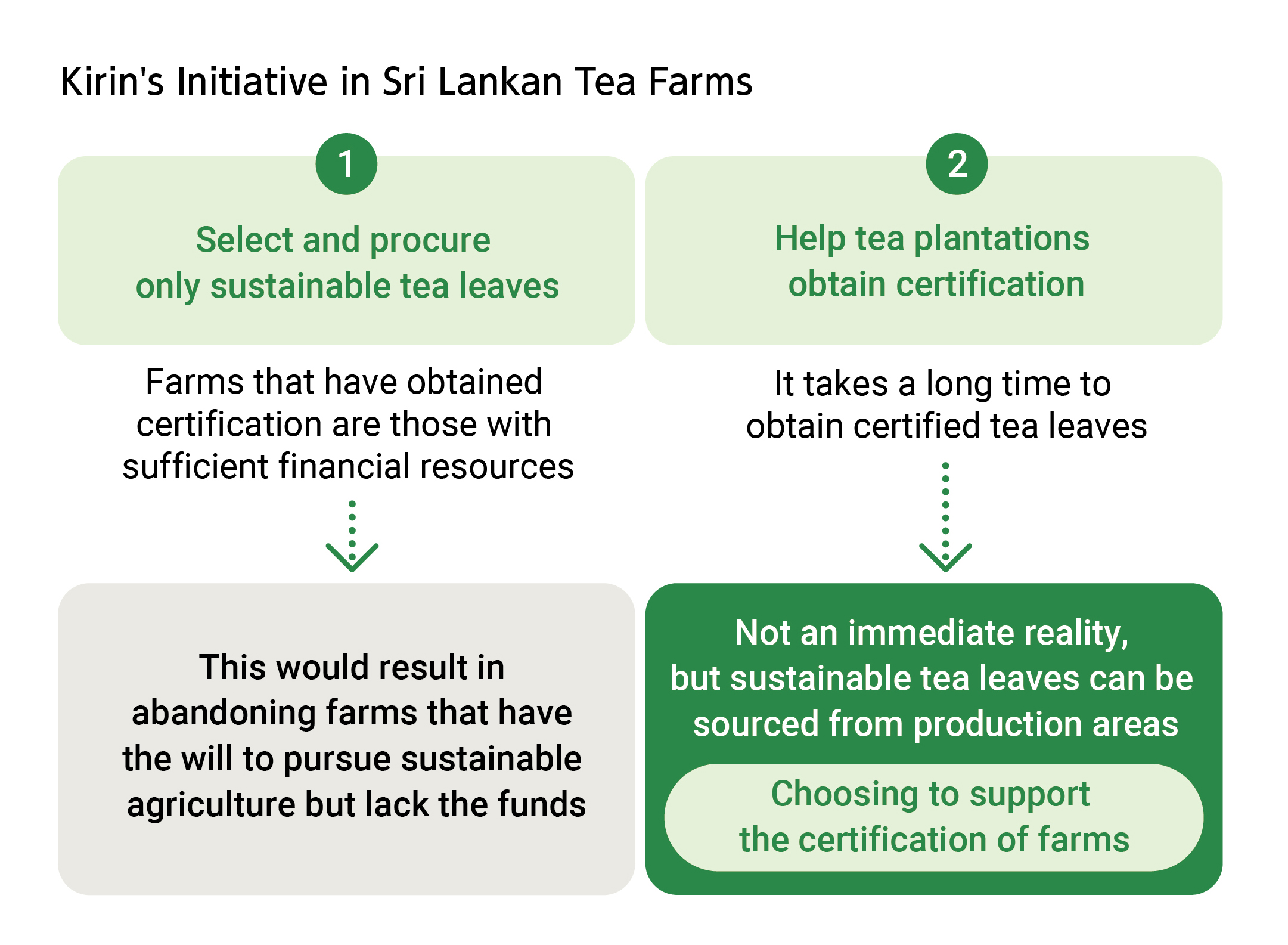Our Holistic Approach
Strategies for addressing material environmental issue
Our Holistic Approach to Solving Interrelated Environmental Issues
The Kirin brewing philosophy of “Reverence for Life” is behind the Kirin Group’s environmental management. Malt, hops, and water are all blessings from nature, and yeast, which breaks down the sugar in wort into alcohol and carbonic acid and determines the flavor of beer, is also a microorganism. The idea is that in order to produce great-tasting beer, we need to continue to work directly with “life” and study the life sciences. The idea of “Reverence for Life” is based on the teachings of respect for the diversity of humanity and the natural environment of Dr. Albert Schweitzer, who won the Nobel Peace Prize in 1952, namely his idea that, “I am life that wills to live, in the midst of life that wills to live.” This idea also serves as the backbone of our CSV management, in which we contribute to those around us (social value), as well as our own company (economic value). The Kirin Group was quick to view natural capital as a source of value creation, and it is fair to say that we selected agricultural products and water as the first targets for TCFD scenario analysis not only because we recognize that we are a company that uses ecosystem services, but also because we have put our brewing philosophy of "Reverence for Life" into practice at the management level. Our corporate culture, which is fostered through developing the life sciences, has led to R&D capabilities and engineering technologies that go beyond areas outside of the life sciences, such as packaging, and contributes to the competitive advantage of the Kirin Group’s engineering and R&D capabilities. At the same time, it acts as the driver for our holistic approach to four environmental issues. Such an organizational culture that values science lead to not only the industry-leading pursuit of getting our science-based GHG emissions reduction targets validated by the Science Based Targets initiative (SBTi) but also our intention to contribute to the setting of scientific targets related to natural capital through participation in the pilot program of the Science Based Targets Network. Consortiums with NGOs and other companies, collaboration with local communities, and participation in global initiatives are all aspects of our holistic approach.
We have made some revisions to the "Environmental Value Correlation Chart," which shows the Kirin Group's integrated approach, to clarify that we will expand the scope of our positive impacts, which is a key message of our Environmental Vision.
What we added was the "Landscape Approach" and the concept of "food systems."
In Sri Lanka, we decided that the procurement of certified tea leaves alone would not ensure the sustainability of our production areas, so we chose to support tea plantations in obtaining certification. The Kunming-Montreal Global Biodiversity Framework (GBF) refers to the "Landscape Approach" as a method that comprehensively addresses the diverse human activities and natural environments of raw material production areas and leads to sustainable solutions to problems. The Sri Lankan case is also a solution to the problem through the concept of a "food system," which considers food not as an individual issue such as agriculture, but as a single system involving food production, processing, distribution, consumption, and waste. A one-dimensional view that looks only upstream and downstream, with the company at the center, could fail to realize that there are negative trade-offs for others outside the value chain, even if there seems to be a positive impact on the company. Although the landscape approach and the approach treating food as a system take time and effort, they have a positive impact on raw material producing areas and contribute to stable procurement of raw materials and brand improvement. So, we have decided to clearly recognize and work on them as part of the Kirin Group's integrated approach.

